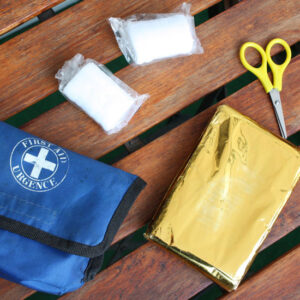My husband and I volunteer with the local fire department. I noticed that the medical team was using heat-reflective emergency blankets to keep victims warm. I snagged an empty package and read, “Emergency Blanket: 52 by 82 inches; reusable; can offset hypothermic reactions; reflects sun; retains up to 90 percent of body heat; for emergencies, camping, sporting events and more!”
Wow — my head was spinning with ideas! I’ve heard that shiny, reflective mulches confuse some plant pests. Other gardeners swear reflective light boosts yields because it increases the amount of sunlight that reaches the plants. I now use these Mylar blankets as a backdrop for my plants during cloudy winter periods, and as a cover over my plants on freezing nights. What a difference! My plants don’t freeze anymore, and I even think they look greener.
I plan on using these emergency blankets next gardening season, too, by hanging them behind my trellises to reflect more light onto my vertical plants.
Deborah Young
Foxworth, Mississippi







